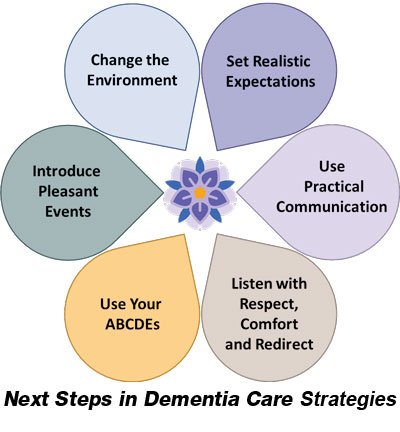Key Features to Look for in a Memory Care Facility Charlotte for Seniors
Key Features to Look for in a Memory Care Facility Charlotte for Seniors
Blog Article
Producing a Helpful Atmosphere With Professional Mental Deterioration Care
Producing a helpful atmosphere for people with mental deterioration demands a multifaceted technique that incorporates experienced care methods customized to their special demands. This includes not just the physical style of spaces that promote safety and convenience but additionally the application of efficient interaction strategies that boost trust fund and involvement. The incorporation of significant activities can substantially promote cognitive function and psychological wellness. However, the role of caretakers in this dynamic can not be ignored, as their well-being is equally crucial to providing thoughtful treatment. What, then, are the essential parts that can transform this vision right into fact?
Recognizing Dementia Demands
When addressing the intricacies of mental deterioration care, understanding the one-of-a-kind needs of people dealing with this problem is paramount - Dementia Care Charlotte. Dementia is a complex cognitive disorder that impacts memory, thinking, and day-to-day performance. For that reason, caretakers and medical care professionals need to recognize that each person's experience with mental deterioration differs considerably, influenced by factors such as the kind of mental deterioration, phase of the disease, and personal background.
Effective dementia care necessitates a person-centered method that values the individual's preferences, routines, and values. This consists of promoting open interaction, which can help caregivers discern the specific needs and desires of those they support. Furthermore, comprehending behavioral changes, such as agitation or withdrawal, is critical, as these behaviors often signify unmet demands or discomfort.
Moreover, caretakers need to be furnished with understanding concerning the emotional and mental elements of dementia. Individuals may experience sensations of disappointment, confusion, or despair, requiring compassionate reactions that validate their experiences. By growing an environment of compassion and understanding, caregivers can improve the quality of life for individuals with mental deterioration, ensuring they really feel valued and supported throughout their trip.
Designing Safe Spaces
Developing safe areas for people with dementia is essential, as a well-designed setting can considerably boost their complacency and independence. The physical format of a space must prioritize security while advertising autonomy. This includes reducing barriers, guaranteeing clear paths, and making use of non-slip flooring to reduce the risk of falls.
Integrating soothing and familiar aspects, such as individual photos and valued possessions, can assist reduce anxiety and develop a sense of belonging. Additionally, using proper lights is important; all-natural light is better, yet soft, flexible illumination can aid protect against complication and disorientation throughout various times of day.

Interaction Strategies
Effective communication methods are critical for promoting significant communications with people living with dementia. Offered the cognitive challenges connected with this condition, caregivers need to employ techniques that improve understanding and minimize frustration.
This approach helps to develop trust fund and signals that the caretaker is totally involved. It is likewise valuable to ask yes-or-no inquiries, as investigate this site these are simpler for people with mental deterioration to process and answer.
Non-verbal interaction plays a significant role as well; motions, face expressions, and touch can communicate empathy and connection. Caregivers need to be in harmony with the individual's non-verbal cues to assess their emotion and change their method accordingly.
In addition, permitting ample time for feedbacks is important. Individuals with mental deterioration might need extra time to procedure information and create their thoughts. Verifying their experiences and sensations, regardless of exactly how fragmented they may appear, promotes a sense of dignity and regard. By executing these communication strategies, caregivers can develop a helpful ambience that enhances the health of people living with dementia.
Engaging Activities
Engaging activities play a crucial duty in enhancing the top quality of life for people coping with dementia, enhancing the communication methods formerly reviewed. These activities not only offer cognitive excitement but likewise cultivate a sense of objective and belonging. Tailoring activities to align with the individual's choices, rate of interests, and capacities is necessary for making the most of interaction.
Innovative pursuits, such as art and music therapy, can evoke emotions and memories, helping with connections with caretakers and peers. Simple tasks like horticulture or food preparation permit purposeful engagement, urging freedom and self-confidence. Furthermore, physical tasks, including walking or gentle exercises, promote total health and can minimize stress and anxiety and anxiety.

Support Resources for Caregivers
Taking care of a private with dementia can be a frustrating experience, making accessibility to support resources vital for caregivers' health. Various sources are offered to assist caregivers in taking care of the psychological and practical challenges related to dementia treatment.
Neighborhood support teams provide a crucial system for caretakers to share experiences, get inspiration, and gain insights from others dealing with comparable difficulties. Numerous companies, such as the Alzheimer's Organization, offer curricula and workshops that boost caregivers' abilities and knowledge regarding mental deterioration.
In addition, respite care solutions blog here can be invaluable, enabling caregivers to take essential breaks without jeopardizing the treatment provided to their loved ones. This sort of assistance can protect against caretaker burnout, promoting general psychological and physical wellness.
On-line sources, consisting of websites and online forums committed to dementia treatment, use caregivers the adaptability of accessing details and area assistance at their convenience. Furthermore, mental wellness specialists concentrating on caretaker assistance can give tailored counseling and coping techniques.
Integrating these assistance sources into everyday routines ensures that caretakers not only satisfy their responsibilities effectively yet additionally prioritize their own well-being, fostering a much healthier caregiving setting.
Final Thought
In conclusion, developing an encouraging atmosphere for blog here people with dementia requires a multifaceted technique that resolves their unique requirements. Together, these components contribute to an alternative structure that advertises safety, convenience, and psychological wellness for both individuals with dementia and their caregivers.
Creating a supportive setting for people with dementia demands a multifaceted technique that incorporates professional care approaches tailored to their one-of-a-kind requirements. Charlotte Care Home. Caregivers and health care experts should acknowledge that each person's experience with mental deterioration differs significantly, influenced by elements such as the kind of dementia, phase of the condition, and individual history
By growing a setting of compassion and understanding, caretakers can enhance the quality of life for people with mental deterioration, guaranteeing they feel valued and supported throughout their journey.
By carrying out these interaction methods, caregivers can produce a supportive atmosphere that enhances the health of people living with dementia.
Together, these elements add to a holistic structure that advertises security, comfort, and emotional health and wellness for both people with dementia and their caregivers.
Report this page